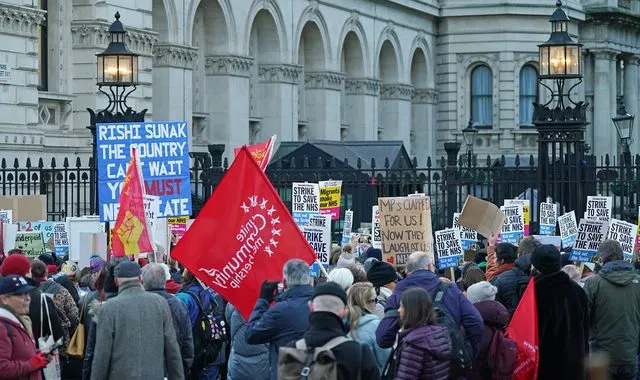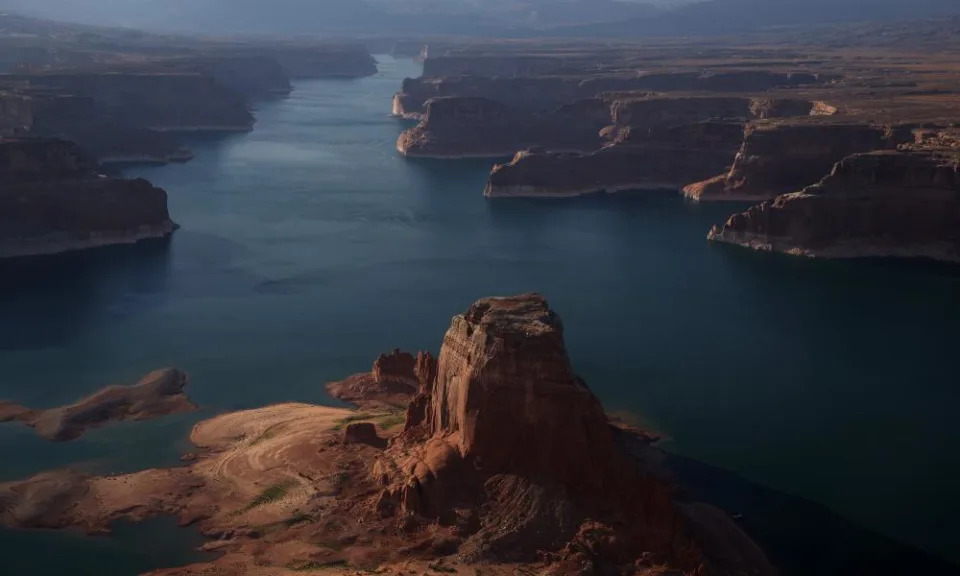Alice Miranda Ollstein
Wed, March 8, 2023
Senior Republicans in the House and Senate are proposing deep cuts to Medicaid as talks around reducing the deficit intensify ahead of a budget showdown between President Joe Biden and House leaders.
As outside conservative groups make a case for cuts in closed-door briefings and calls, members point to pledges from party leaders on both sides not to touch Social Security or Medicare as a key reason the health insurance program for low-income Americans is on the chopping block.
Lawmakers, however, remain divided on how they want to bring down the cost of the $700 billion program, with proposals to add work requirements, cap spending and repeal Obamacare’s Medicaid expansion all under consideration.
“No one's interested in doing anything other than saving it to make it more solvent for those that might need it down the road,” Sen. Mike Braun (R-Ind.) told POLITICO. “If you want to save [Medicaid] for future generations, it's never too early to look at how to do that.”
Biden, who is expected to release his budget on Thursday, has spent much of the year castigating Republicans for proposals to cut Medicare, Social Security, Medicaid and the Affordable Care Act part of a broader effort to paint the GOP as a threat to popular health programs. Though Democrats, who control the Senate, will almost certainly reject big cuts to Medicaid, Republicans' desire to rein in federal spending portends a drawn out political fight over a program that now insures more than one-in-four Americans.
Republican House and Senate leadership have been adamant that they will not cut those two entitlement programs, but have said less about Medicaid, which insures more than 90 million Americans. That number swelled during the Covid-19 pandemic, when states were barred from removing people who were no longer eligible.
Asked if assurances by GOP leaders that Medicare and Social Security are off the table have put more pressure on lawmakers to find savings in Medicaid, Rep. Michael Burgess (R-Texas) quipped: “It doesn’t take much imagination to figure that out.”
Some Republicans want to revive a 2017 plan to phase out the enhanced federal match for Medicaid and cap spending for the program — an approach the Congressional Budget Office estimated would save $880 billion over 10 years and increase the number of uninsured people by 21 million.
“If you remember back to the American Health Care Act, we proposed that we make some significant changes to Medicaid. I think you're gonna find that some of those same ideas are going to be revisited,” said Rep. Buddy Carter (R-Ga.), a member of the House Budget Committee and the conservative Republican Study Committee, a group now working on its own budget proposal to pitch to GOP leadership.
Carter added that there is also interest in the caucus in abolishing Obamacare’s Medicaid expansion, arguing that the majority of states that have opted to expand the program over the last decade might have “buyer’s remorse.”
“Medicaid was always intended for the aged, blind and disabled — for the least in our society, who need help the most,” he said. “Trying to get back to that would probably be beneficial.”
Carter and many other Republicans are also pushing for Medicaid work requirements, though the one state that implemented them saw thousands of people who should have qualified lose coverage.
“For the people who are on traditional Medicaid — the pregnant, children and disabled — there’s no sense in talking about work requirements,” Burgess said. “But for the expansion population, able-bodied adults who were wrapped in under the Affordable Care Act, yeah, that has to be part of the discussion.”
Other Republicans want to make narrower reforms. Rep. Brett Guthrie (R-Ky.), who chairs the Energy and Commerce Committee’s Health Subcommittee, is looking at changes to value-based payments in Medicaid so that states aren’t “on the hook for treatments that don’t work.” Still others are weighing potential changes to areas within Medicaid, including provider taxes and how to handle coverage for people who are eligible for both Medicare and Medicaid.
The GOP members are spurred on by outside conservative groups like the Paragon Institute, which has been holding monthly briefings for Capitol Hill aides and backchanneling with members.
“If you look at what’s driving the debt, it’s federal health programs,” Brian Blase, the president of Paragon, who worked at the White House’s National Economic Council under the Trump administration, told POLITICO. “Either Congress will reform federal health programs or there will be a massive tax increase on the middle class.”
Democrats, for their part, are working to make any proposal to cut Medicaid as politically risky for Republicans as threats to Medicare.
“I worry that my Republican colleagues have, I guess, heard from the public about their desire to cut Social Security and Medicare [and] are looking elsewhere, and obviously poor people have very little representation in Congress, so that’s an easy target,” said Sen. Bernie Sanders (I-Vt.), who chairs the Health, Education, Labor and Pensions committee.
Democrats hoping to shield Medicaid in the upcoming budget negotiations are emphasizing how many red states have voted to expand the program since Republicans last took a run at it in 2017. They’re also stressing that the people covered by Medicaid aren’t solely low-income parents and children.
“Right now at least 50 percent of Medicaid goes to seniors, and a lot of that is for nursing home care,” Rep. Frank Pallone (D-N.J.), the top Democrat on the Energy and Commerce Committee, told reporters. “People don't realize that Medicaid is the ultimate payer for nursing home care once you run out of money or once your Medicare runs out.”
In a speech in late February, President Joe Biden excoriated Republicans for pushing deep cuts to Medicaid, arguing that doing so would threaten the finances of rural hospitals that are barely able to keep their doors open today.
“Many places throughout the Midwest, you have to drive 30, 40 miles to get to a hospital. By that time, you’re dead,” he said. “Entire communities depend on these hospitals. Not getting Medicaid would shut many of them down.”
Two people familiar with White House plans tell POLITICO that Biden is expected to include a federal expansion of Medicaid in the remaining holdout states in the budget he will submit to Congress later this week.
Adam Cancryn contributed to this report.
.png)
















